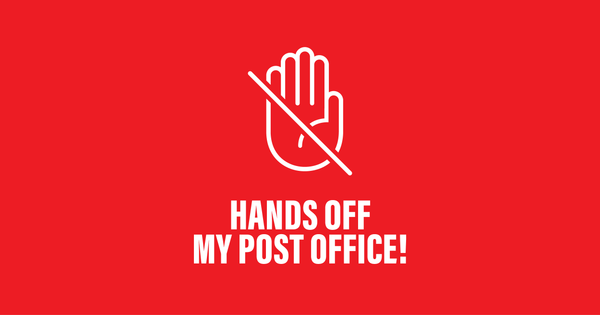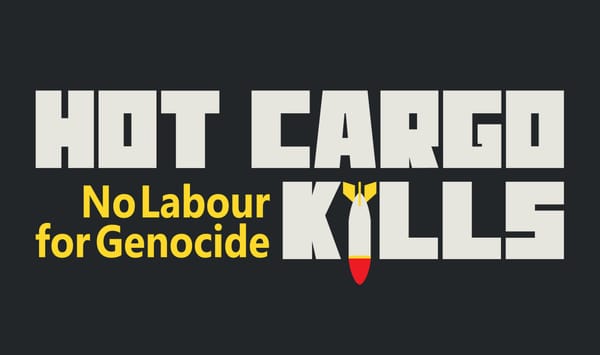
This past week, union leaders in Ontario came together to issue a set of demands directed at Premier Doug Ford’s government.
Signed by more than 30 labour union officials and released by the Ontario Federation of Labour (OFL), the statement outlines a long list of grievances over the government’s handling of the pandemic, as well as a set of immediate actions labour believes “represent the bare minimum of what is required to confront this unprecedented crisis.”
As the unions write, “Ontarians are witnessing the collapse of our health care system. Health care workers are burnt out, demoralized, and getting sick in the thousands. Women and racialized workers are among the hardest hit. Many health care workers are leaving their jobs, or have left already. There is a massive staff shortage. Ambulances are tied up for hours as understaffed hospitals struggle to offload patients. Long-term care facilities are appealing to restaurants and hotels to help feed their residents. As Omicron spreads to all regions of the province, we’re running out of beds and tens of thousands of surgeries have been cancelled. Our health care system is rapidly approaching its breaking point.”
Indeed, SEIU Healthcare, the union representing nearly 60,000 health care workers in the province, told CityNews last week that a hospital in Orangeville was using kitchen and dietary staff to assist nurses in the face of staff shortages. Just another small example of a system in widespread crisis.
As I wrote three weeks ago in Class Struggle, the devastation wrought by this latest wave is in part the result of decades of austerity and its particularly acute effects on the health care system, both in Ontario and nationally. Ford and his government have either sat on cash earmarked for pandemic frontline worker support and health care or handed it over to the wealthy holders of provincial debt.
Beyond this fiscal restraint in a time of unprecedented crisis, Ford’s Conservatives have also attacked public sector workers at every turn. Bill 124, which caps wage increases for a range of public sector workers to no more than 1 per cent annually, not only significantly cuts pay in the face of rising inflation, but also exacerbates the staff shortages being experienced in health and long-term care, education, and childcare.
The OFL is calling on the Ontario government to recall the legislature and repeal Bill 124, as well as Bill 195, which limits the collective bargaining rights of nurses and other workers under the guise of the “flexible reopening” of the economy.
The Amalgamated Transit Union Canada, which signed onto the joint statement, also called specifically for the repeal of Bill 124, writing, “Bill 124 is harmful to all workers in the provincial public sector – including transit workers, like those at Metrolinx, capping wage increases to 1 per cent a year for three years. Not only this but the wage-suppression legislation also has implications for workers across other sectors who are currently in collective bargaining with their employers or will be in the future.”
Unions are also reiterating the call for 10 permanent paid sick days for all workers, with 14 during public health emergencies, along with undertaking emergency measures to address the staffing and funding crises in the healthcare system.
Similar calls to action have been issued by labour centrals across the country recently. The Saskatchewan Federation of Labour and the leaders of six public sector unions in the province demanded last week that Premier Scott Moe reimpose public health restrictions. Saskatchewan remains the only province that hasn’t reintroduced restrictions to deal with surging Omicron cases. Nurses in the province, represented by the Saskatchewan Union of Nurses, are witnessing the near collapse of hospital capacity.
The Alberta Federation of Labour, following up on a joint union statement issued a week earlier, is again calling on Premier Jason Kenney’s government to “mandate and publicly provide better-fitting N-95 or KN-95 masks, to all Albertans free of charge, to combat the rising numbers of people infected by the Omicron variant of COVID-19.” The Alberta unions have been demanding “temporary circuit-breaker measures” to flatten the latest pandemic wave, labeling the provincial government’s inaction to date “willful negligence.”
It now seems clear that the leaders of most provinces across the country are unwilling to take the steps necessary to address Omicron or the potential emergence of new variants, as well as the devastation COVID continues to cause to already strapped health care capacity across the country. With public sector workers exhausted and under attack, unions and labour centrals are coming together to channel workers’ anger and frustration and apply pressure to these recalcitrant provincial governments. Last weekend, the OFL held a phone bank to pressure Conservative MPPs to take action on the labour central’s core demands.
Yet, workers in most provinces face rightwing Conservative governments that appear hardly phased by labour’s pressure thus far. There has been a general paucity of public sector labour militancy in response to provincial government inaction. Workers stretched to the brink may be understandably reluctant to take on the additional task of workplace actions. However, the deeper into this pandemic we get, the harder it is to imagine a course correction that doesn’t involve much greater levels of labour action, in the workplace and in the street with broad public support.
Moreover, there remains a certain degree of inconsistency in the pandemic messaging put forward by various segments of the labour movement, particularly when it comes to vaccines and mandates.
For example, earlier in the pandemic, before the emergence and spread of the Delta and Omicron variants, a strategy based almost entirely on vaccination made a certain degree of sense. However, because of a host of factors — unwillingness to challenge the intellectual property rights of pharmaceutical corporations and prevent the consequent global vaccine apartheid; health care systems crippled by decades of austerity; a obstinate minority of anti-vaxxers — such a vaccine-only strategy has been insufficient for some time. Mitigation measures, such as continued indoor masking, business and workplace closures etc., have again become necessary.
As I wrote last summer, unions have found themselves in a somewhat unenviable position when it comes to workplace vaccine mandates. While strongly encouraging their members to get vaccinated, most unions and labour centrals have avoided taking strong positions on vaccine mandates.
On the one hand, unions need to ensure the health and safety of their members, a central component of which has been to increase vaccine takeup at work; on the other, unions have also had to represent vaccine hesitant and outright anti-vax members. Although the latter are a small minority, they’ve received an outsized share of media attention.
Rather than tackle this contradiction head-on and come out in support of much-needed workplace mandates, unions have instead largely chosen to stay silent. We’re presently witnessing some of the blowback of this strategy, as a federal road transport mandate is about to take effect and anti-vax truckers that organized a protest “convoy” are gaining media attention threatening further supply chain shortages as a result.
Provincial labour federations have begun to coalesce around a key set of demands to not only address the present Omicron crisis but also to fix the damage done to our health care system by decades of austerity and neglect. Putting these demands into action into, however, is going to require activating rank-and-file union members and the broader public in ways that labour has thus far been unable to do.







